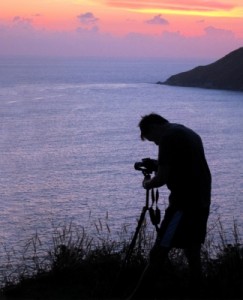I’ve always camped
It seems that people that camp have always camped. I can’t remember a time when I didn’t camp. When I was growing up I don’t think I knew there was another way to travel besides camping. Who ever heard of hotels and motels except in emergencies! Now that I am a little older we have electric air mattresses that are more comfortable than my bed at home. And sometimes we forgo the tent completely for a rustic cabin, but we still camp.
Break the paradigm – Give camping a try
Even though many people are introduced to camping at a young age it doesn’t mean you can’t give camping a try a little later in life. Let’s be clear what I am suggesting here. Some people think of camping as backpacking into the wilderness with no modern conveniences. I’m not talking that (although there is nothing wrong with that once you have some experience.) I am suggesting modern camping in a developed campground with hot showers and real toilets!
One suggestion I can make if you are just starting out is to try the KOA (Kampgrounds of America) chain. KOA is a franchised chain with fairly strict standards. While some locations are better than others, I have been using KOA for over 30 years and usually have a good experience. Most importantly, the facilities are modern and very clean. If you don’t want to pitch a tent most locations now have cabins you can rent fairly reasonably. This is really appreciated if you hit a few nights of rainy weather or are tired from long distance traveling.
The best camping sites
While the KOA’s are pretty uniformly comfortable, and in fairly good locations, some of the prettiest campsites are right in the state and national parks. However, sometimes the facilities in the public parks are not quite as nice and can vary greatly between locations. Some might offer only a tent site, a nearby water source, and a pit toilet. But the scenery can be simply amazing. This is common in many of the national forests. I remember a site like this Wyoming. Not much in the way of facilities, but it featured a beautiful site right along a white water creek that looked like a postcard. I have found that is sometimes the trade-off – you trade a little less in beautiful surroundings for more in the way of modern facilities.
Watch the weather
Watch the weather forecast for your first camping trip. It is hard to stay positive when you are facing three days of rain in a tent. It may be disappointing, but it might pay to put off that first trip for a few days.
Camp off season – just a little off season
We’ve had good luck with camping just a little off season. You avoid the crowds, prices are lower, and you have the attractions more to yourself. I am not talking winter camping here, leave that to the rugged professionals. I am talking a few weeks before most schools let out, or in the early fall.
Car Camping checklist – packing is half the fun
I can’t over emphasize how important it is the make a list. Although many of the modern campgrounds have little stores its not unusual to find you forgot something at the most inconvenient time. Things like can openers, salt and pillows are hard to find in the woods! I think I’ll make a suggested camping list a subject for a future post.
Don’t travel too far and know when to take a break
I have learned the hard way to not travel too far each day when relying on camping. Setting up a tent and campsite is work, and hard to do after 10 hours of driving. So it pays to end your driving early or plan on doing your camping in stretches of two or more days at each location so things aren’t so rushed, and you have time to enjoy yourself. Don’t be afraid to take a break once in a while on a road trip and stay in a comfortable hotel to recharge your batteries.
Hopefully I have given you something to think about if you have never tried camping or encouraged you to try it again if it has been a while since you went off on your camping road trip.
Until next time…


